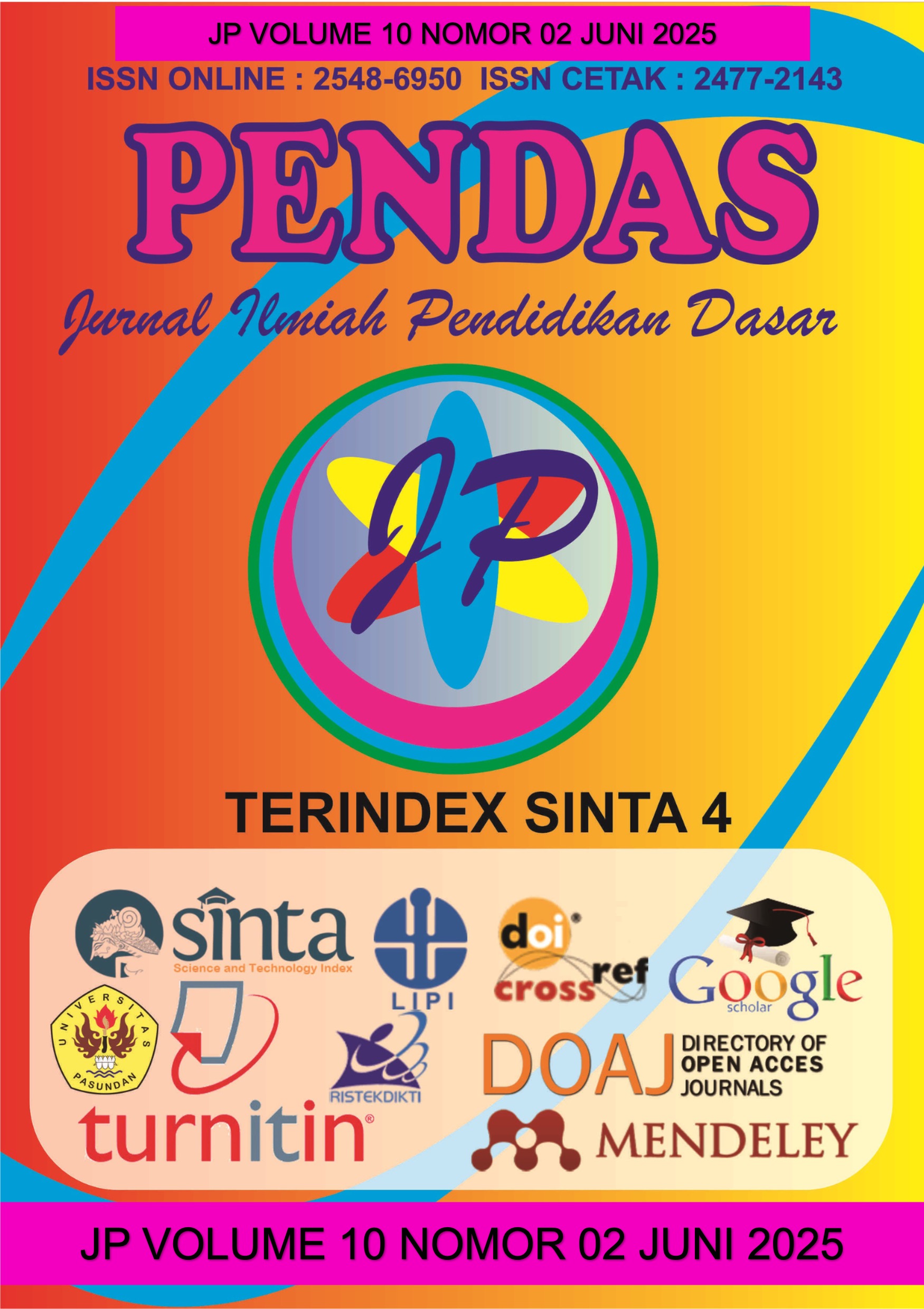INTEGRASI NEURO LINGUISTIC PROGRAMMING (NLP) PADA MAHASISWA DENGAN GANGGUAN DEMOTIVASI PENGERJAAN SKRIPSI
DOI:
https://doi.org/10.23969/jp.v10i02.25047Keywords:
demotivation, neuro linguistic programming, NLP, thesisAbstract
Students' difficulties in completing their thesis due to continuous revisions, obstacles in the field and guidance that are considered difficult become a psychological burden that can develop into demotivation. If not overcome, difficulties will develop into demotivation, namely a decrease in the enthusiasm of students to complete their thesis. This research aims to: (1) integrate NLP in students who experience demotivation in thesis work and (2) develop a Neuro Linguistic Programming (NLP)-based resilience strategy guide that can be applied by students to overcome their demotivation in completing their thesis. This research used a qualitative approach with an action research design. The research subjects were active students of the Indonesian Language and Literature Education study program at Universitas Negeri Makassar who were selected using purposive sampling technique. NLP intervention was conducted through reframing, anchoring and visualization techniques with in-depth interviews as the main technique of data collection. Data analysis was conducted using the Interpretative Phenomenological Analysis (IPA) approach. The results showed that NLP is effective to help students overcome demotivation in thesis work. NLP helps students dialogue with themselves, visualize their success, and build enthusiasm starting from small things. Students can also apply resilience strategies, namely learning to manage emotions and seeking social support.
Downloads
References
Cahya, M. N., Ningsih, W., & Lestari, A. (2023). Dampak Media Sosial terhadap Kesejahteraan Psikologis Remaja: Tinjauan Pengaruh Penggunaan Media Sosial pada Kecemasan dan Depresi Remaja. Jurnal Sosial dan Teknologi, 3(8), 704–706. https://doi.org/10.59188/jurnalsostech.v3i8.917
Etika, N., & Hasibuan, W. F. (2016). Deskripsi Masalah Mahasiswa Yang Sedang Menyelesaikan Skripsi. KOPASTA: Jurnal Program Studi Bimbingan Konseling, 3(1), 40–52. https://doi.org/10.33373/kop.v3i1.265
Imah, M. T., & Purwoko, B. (2019). Studi KepustakaanPenerapan Konseling Neuro Linguistic Programming (NLP) dalam Lingkup Pendidikan. Jurnal Mahasiswa Universitas Negeri Surabaya, 10–19.
Intan, N. (2020). Pelaksanaan Konseling Individu dengan Teknik NLP (Neuro Linguistic Programming) untuk Mengatasi Kecemasan Belajar Matematika Siswa di MAN 1 Medan [Skripsi]. Universitas Islam Negeri Sumateri Utara.
Keezhatta, M. S. (2019). The Impact of Neuro-Linguistic Programming on English Language Teaching: Perceptions of NLP-Trained English Teachers. International Journal of English Linguistics, 9(6), 454–465. https://doi.org/10.5539/ijel.v9n6p454
Kong, E., & Farrell, M. (2012). Facilitating Knowledge and Learning Capabilities through Neuro-linguistic Programming. The International Journal of Learning: Annual Review, 18(3), 253–266. https://doi.org/10.18848/1447-9494/CGP/v18i03/47540
Lestari, P. E., Ramaita, R., & Ameliati, S. (2021). Studi Literatur: Hubungan Tingkat Stress dengan Motivasi Mahasiswa dalam Menyusun Skripsi. Indonesia Jurnal Perawat, 6(1), 15–21. https://doi.org/10.26751/ijp.v6i1.869
Lutfiah, M. N., Wibowo, H., & Santoso, M. B. (2020). Neuro-Linguistic Programming untuk Meningkatkan Rasa Percaya Diri pada Remaja Penghuni Panti Asuhan Rohadatul Jannah. Share : Social Work Journal, 10(1), 83–90. https://doi.org/10.24198/share.v10i1.25653
Mehdi, M., Ali, A., & Batool, A. (2022). A Study of the Effects of Neuro-Linguistic Programming On Human Behaviour. Pakistan Journal of Social Research, 4(1), 108–118.
Muskita, M., & Muskita, S. M. W. (2022). Pengaruh Penggunaan Media Sosial Terhadap Minat Belajar Mahasiswa Program Studi Ilmu Komunikasi FISIP UKIM. JURNAL SAINS, SOSIAL DAN HUMANIORA (JSSH), 2(2), 70–75. https://doi.org/10.52046/jssh.v2i2.1511
Nayebi, M. (2024). Neuro-Linguistic Programming Stroke Emo-Sensory Intelligence and Academic Success: A Mixed-Methods Study. Journal of Cognition Emotion and Education, 2(2), 51–63. https://doi.org/10.22034/cee.2024.457812.1024
Nompo, R. S., Pragholapati, A., & Thome, A. L. (2021). Effect of Neuro-Linguistic Programming (NLP) on Anxiety: A Systematic Literature Review. KnE Life Sciences, 496–507. https://doi.org/10.18502/kls.v6i1.8640
Pratitis, N. T., & Azalia, S. S. (2020). Terapi Neuro Linguistic Programming (NLP) untuk meningkatkan resiliensi pada remaja dengan Non-Suicidal Self Injury (NSSI). Persona:Jurnal Psikologi Indonesia, 9(2), 269–285. https://doi.org/10.30996/persona.v9i2.4099
Rapikah, R., & Casmini, C. (2020). Pengembangan modul hipno-Neuro Linguistic Programming (NLP) untuk mengatasi stage fright Mahasiswa. Counsellia: Jurnal Bimbingan dan Konseling, 10(2), 109–120. https://doi.org/10.25273/counsellia.v10i2.5816
Tanjaya, C. O., & Basaria, D. (2024). Gambaran Prokrastinasi Penyelesaian Skripsi pada Mahasiswa yang Tidak Lulus Tepat Waktu. Jurnal Syntax Admiration, 5(12), 5444–5456. https://doi.org/10.46799/jsa.v5i12.1878
Yemima, C. K., Wulandari, A. S., Jacub, R. R., Subhan, N. I., Lestari, Y., & Nihaya, K. (2025). Penerapan Neuro Linguistic Programming dalam Meningkatkan Motivasi Siswa: Tinjauan Pustaka Sistematis. Didaktika: Jurnal Kependidikan, 14(1), 575–590.
Downloads
Published
Issue
Section
License
Copyright (c) 2025 Pendas : Jurnal Ilmiah Pendidikan Dasar

This work is licensed under a Creative Commons Attribution 4.0 International License.














































